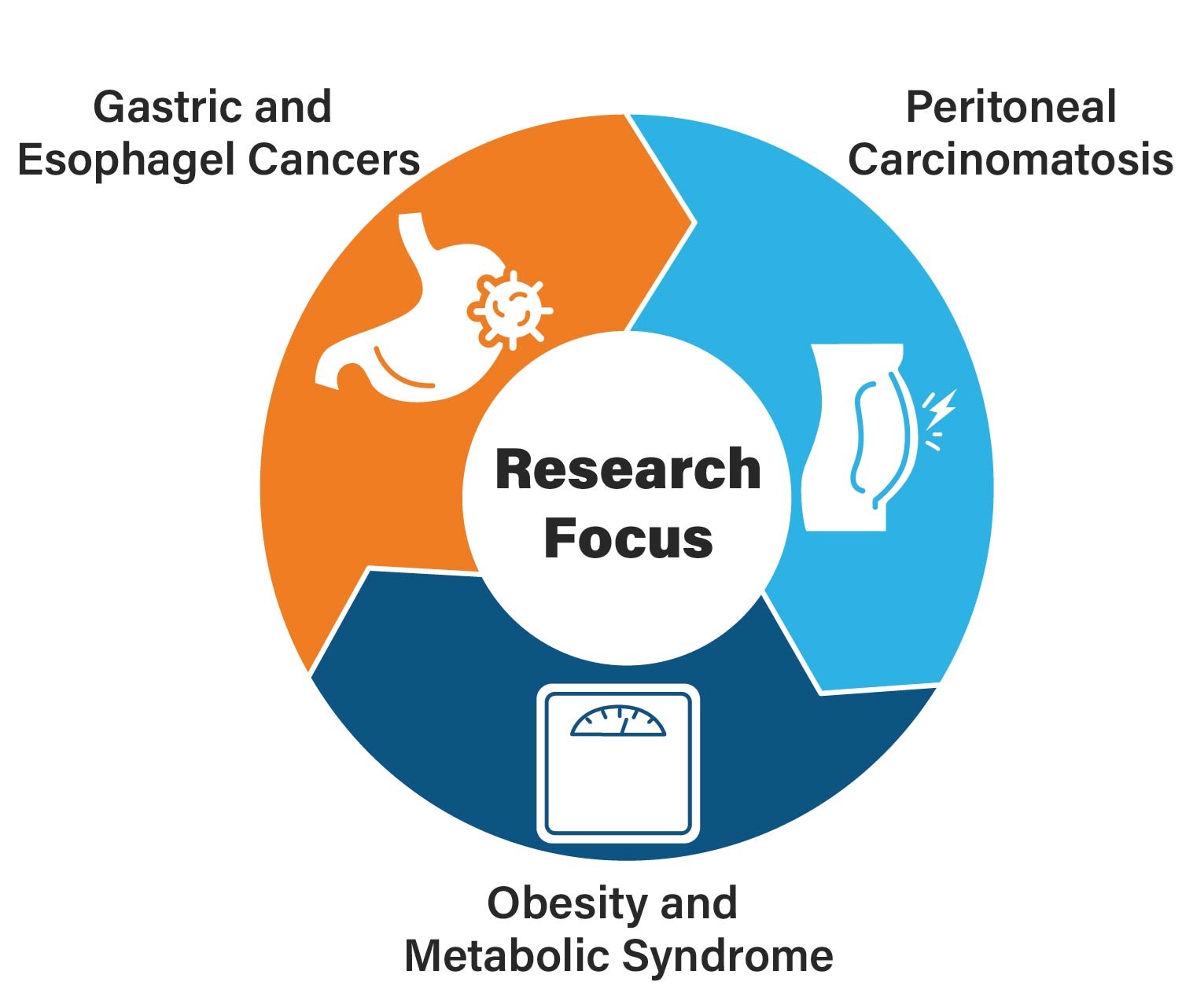The division of Upper Gastrointestinal Surgery has three main focuses namely, Gastric and Esophageal Cancers, Peritoneal Carcinomatosis and Obesity and Metabolic Syndrome.


Gastric Cancer
Stomach cancers cause approximately 800,000 deaths annually worldwide. In Singapore, stomach cancers are the 4th and 5th causes of cancer death in males and females respectively. Gastric cancer is curable if diagnosed at an early stage but it is traditionally associated with poor prognosis: 79% of patients are diagnosed at stage IV, where the five-year survival rate is less than 5%.
In order to constantly provide the most effective treatment options and improve the disease outcome, our team is active in conducting many clinical trials and have initiated several studies involving different centres and countries across the region.

Oesophageal cancer
Oesophageal cancer is the eighth most common cancer overall world-wide (1). In Singapore, oesophageal cancer is uncommon. Despite this, cancer of the oesophagus has very poor survival, making it the sixth most common cause of death from cancer worldwide and the tenth most common of cause of death from cancer among Singaporean Men (2).

Peritoneal Carcinomatosis
Peritoneal carcinomatosis (PC) is one of the most deadly and challenging complications of advanced GC and many other cancers. PC is present in more than 30% of GCs at diagnosis, and the peritoneum is also the most frequent site of metastasis and recurrence after treatment. The incidence of PC is increasing, and its prognosis is worse compared to other sites of metastasis. PC is associated with diffuse histology and the epithelial mesenchymal transition (EMT) molecular subtype of GC. Diffuse GC is common in Asians, and the EMT subtype that is dominant in Singapore is also associated with a lack of targetable oncogenic drivers. Furthermore, the symptoms associated with PC are often intractable to medical treatment and significantly affect patient's quality of life. Current treatment for PC is palliative systemic chemotherapy. However, the response is poor due to chemo-resistance and poor tolerability of treatment. Therefore, PC from GC is a key area of unmet need worldwide, and in Singapore. Approaches to achieve a better understanding and better treatment for this deadly disease is therefore required.

Obesity and Metabolic Disease
Obesity is more than a cosmetic problem and may be complicated by a diverse spectrum of conditions including obstructive sleep apnoea, joint pains or metabolic diseases (e.g. diabetes, hypertension, subfertility, fatty liver disease, polycystic ovarian syndrome) and may result in an overall decrease in life expectancy. Patients suffering from significant obesity also struggle with self-esteem and psychological issues. While losing weight is beneficial, many patients are unable to achieve a sufficient quantum to see significantly improvement in associated medical conditions and quality of life.

Achalasia
The oesophagus is a muscular tube which transmits food into the stomach. When food passes from the lower end of the oesophagus into the stomach, it encounters a muscular ring known as the lower oesophageal sphincter (LOS). The LOS relaxes to allow food into the stomach and tightens to prevent the reflux of food and acid back into the oesophagus.
More

